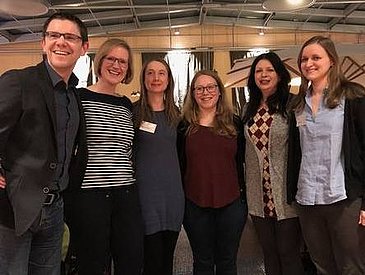Tom Wahlig Foundation supports two projects on stem cell based models of hereditary spastic paraplegia
Hereditary spastic paraplegia is a rare motor neuron disease characterized by progressive gait impairment. Cases that are caused by autosomal-recessive mutations in the gene SPG11 show a complex phenotype with additional symptoms including cognitive impairment due to neurodevelopmental abnormalities. In the Department of Stem Cell Biology (Head: Prof. Dr. Beate Winner), different patient-specific neuronal models of SPG11-linked neurodegeneration have been successfully established to provide more insight into disease mechanisms and potential cures.
These advancements have been honored at the 2018 symposium of the Tom Wahlig Foundation in Berlin. Tatyana Pismenyuk (graduate student of the department) received a prize for her poster presentation "Rescue of neurodevelopmental and neurodegenerative phenotypes in SPG11 by tideglusib". In collaboration with Dr. Martin Regensburger (clinician scientist of the department), she also received funding for an in vitro study on the role of adipocytokines in SPG11 hereditary spastic paraplegia.
More information: beate.winner(at)uk-erlangen.de
Link to Tom Wahlig Foundation: http://www.hsp-info.de/en/researchers/project_reports.htm




